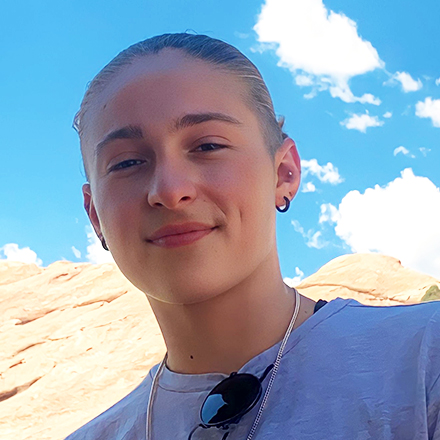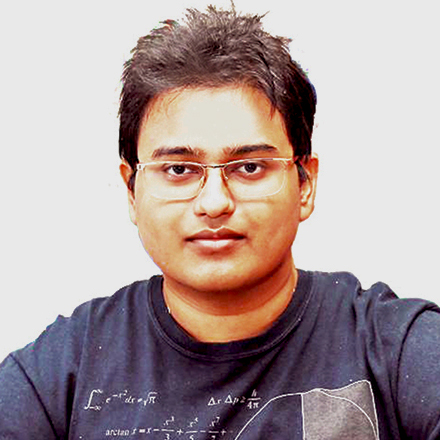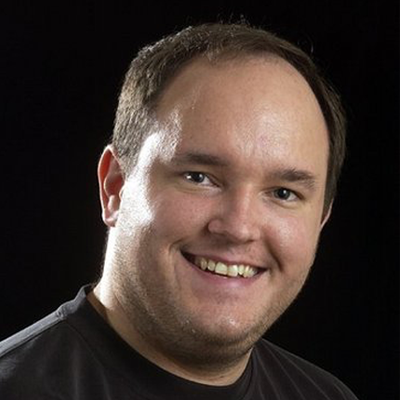This award was established in 2018 to support undergraduate students interested in careers in SETI and astrobiology. Each year, dozens of students intern with SETI and astrobiology scientists, but most pivot to other fields, resulting in fewer talented researchers focused on the search for life beyond Earth.
SETI Forward aims to bridge the gap between these internships and jobs in SETI and astrobiology research by providing $1500 per award. This can cover:
- Travel stipends to facilitate collaboration on SETI research or to present at scientific conferences
- Provide undergraduate student scholarships to organizations engaged in SETI and astrobiology research
2024 Recipients

Gabriella Rizzo
Life at the Limits
Gabriella, currently a first-year PhD student in the Genetics, Cellular and Molecular Biology program at the University of Nebraska-Lincoln in Dr. Karrie Weber's lab, conducted her research at the University of Massachusetts Amherst under the direction of Dr. James Holden as an undergraduate.
Gabriella’s research explored how life can survive in extreme environments like deep-sea hydrothermal vents. The study discovered a new microbe called strain Ax23, a heat-loving organism that produces methane. Found in a Pacific Ocean vent, it thrives at 149°F (65°C), using hydrogen and carbon dioxide for energy. This microbe's survival in such harsh conditions suggests that similar life forms might exist in hydrothermal environments on other worlds, like Europa or Enceladus.
“Astrobiology is inherently an interdisciplinary science—a synthesis of geomicrobiology, physics, chemistry, and astronomy,” said Gabriella. “This breadth allows me the unique and rare opportunity to approach my research questions from many perspectives. Through astrobiology, I have honed my ability to bridge disciplines, distill complex ideas, and collaborate seamlessly across varied scientific backgrounds. These skills position me to lead future projects that address fundamental questions about the nature and existence of life in the universe.”

Pritvik Sinhadc
Decoding the Cosmos
Pritvik is currently pursuing a Bachelor of Science degree with a Major in Physics and a Minor in Astrophysics at the California Institute of Technology (Caltech) and conducted his research at Caltech under the mentorship of Dr. Yuk L. Yung and Dr. Stuart Bartlett.
Pritvik’s project introduced a new way to search for signs of alien technology by studying gravitational waves (GWs), ripples in space caused by massive cosmic events. Using Complexity Theory, a tool for measuring patterns and unpredictability, his research looks for unusual signals in GWs that might point to advanced alien civilizations. This approach differs from traditional methods that focus on detecting radio signals or signs of life as we know it. Instead, it uses universal patterns that could work for any intelligent life, no matter how different it is from us. If successful, this research could change how we search for life in the universe and help answer the question: Are we alone?
“This project has been an extraordinary journey, allowing me to merge my passions for astrophysics, GW physics, and astrobiology,” said Pritvik. “Exploring the unknown and pushing the boundaries of science drive me, and I am honored to receive the SETI Forward Award. This recognition is not just an acknowledgment of my work but a catalyst for my aspirations to redefine how we search for extraterrestrial intelligence by integrating GW physics with Complexity Theory, offering a universal and inclusive approach to identifying technosignatures. I hope to contribute to a future where humanity understands its place in the cosmos and explores life as we don't know it. As I advance in my academic and professional journey, I aspire to bridge theoretical physics, astrophysics, and astrobiology, strengthening my resolve to continue asking big questions about life in the universe."
Champions
SETI Institute Trustee and long-time supporter Dane Glasgow partnered with Berkeley SETI Research Center leadership and loyal supporter Lew Levy to establish SETI Forward. Lew conceived of the idea through his involvement at Berkeley SETI and found enthusiastic support in Dane and the SETI Institute Board of Trustees.

Dane Glasgow
Dane Glasgow is the Vice President of Entertainment at Meta and formerly Vice President of Google, co-founder, and CEO of Neoglyphic Entertainment, Vice President of Global Product Management at eBay, Director of Program Management at Microsoft Live Search, General Manager for the Windows Live Portal & Information Services Client team, President of Jump.com, and Vice President of the Ithaca Division of Meetinghouse Technologies.

Lew Levy
Lew Levy is a long-time supporter of the SETI Institute and member of the SETI Institute’s Council of Advisors. In 2018, he established what would become the SETI Forward Endowed Fund to encourage and support undergraduates entering the SETI field. Lew’s interest in SETI stems from a desire to answer the question, “Are we alone?” and he hopes humanity discovers biology outside of Earth during his lifetime.
He is also a supporter of the University of California Berkeley’s SETI Research Center and is a long-standing member of The Planetary Society. He earned his BS in Information Technology and Accounting from the University of Baltimore and has had a successful 40-year software development career. He is an avid fan of Star Trek, which combines his affinity for technology and SETI.
)